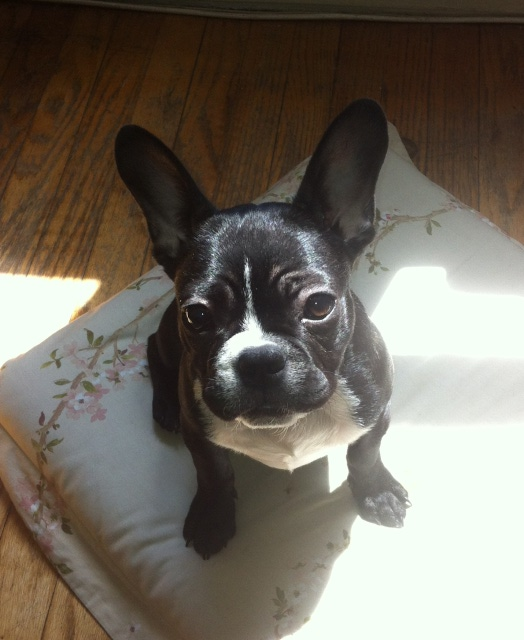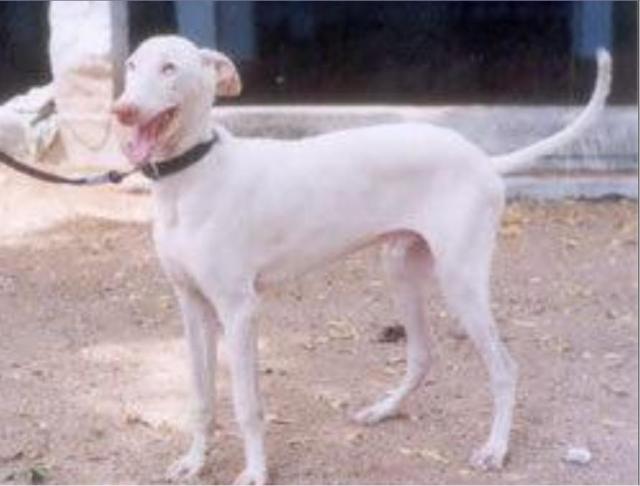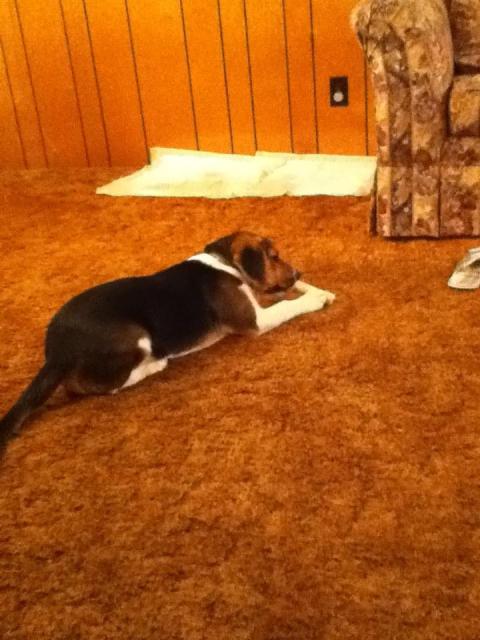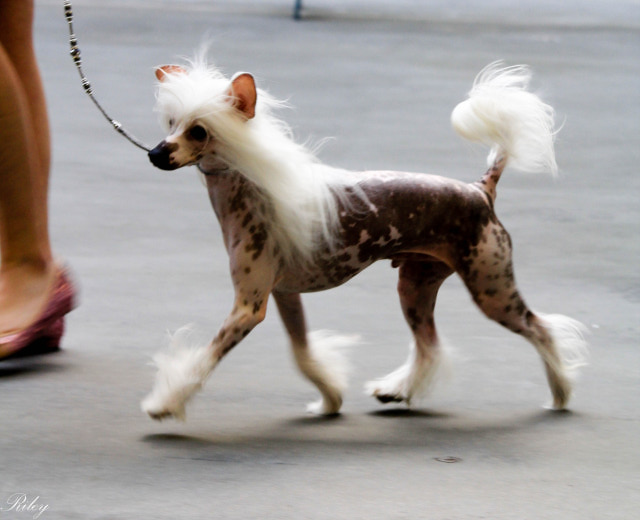QuestionQUESTION: (sorry in advance- the "T" key is a little sticky on my keyboard and I don't always catch the errors)
My 12-week old Shepherd mix puppy (female, spayed) is already showing us how smart, eager to please, and eager to learn she is. However, in he evenings, she has these puppy fits. Usually it comes in a response to not allowing her on the couch, which we do by saying "no" or "down" and then if she doesn't respond (most often she does not) we physically push her off the couch. This usually leads to her biting us. Then, she will become more angry and jump up to bite our hands and wrists. If we challenge her further, she gets low on the ground and barks at us. Everything I have read says to step forward, don't let her win, even pinning her down. None of this seems to get her back to a calm state of mind.
Any reaction to her biting, whether it's saying no, yelping, ignoring, only resuls in an elevated level of excitement. Sometimes I'll take her for a walk to try and get her into an obedient state of mind but lately hese fits have become more frequent and it's impossible to get her out of them. This problem began after her first week in the house when she became more comfortable with us.
I've heard she needs to be socialized with other puppies to learn bite inhibition. However, frustratingly, the shelter from which I got her said she can't be around other dogs for another couple weeks because she needs even more shots! I'm worried that will be too late.
I appreciate you taking the time to help me. I have been doing my homework but all these methods seem to make the problem worse.
ANSWER: Hi Dominique. First, and most importantly, please be sure that you are socializing this puppy as much as safely possible. Take her everywhere you can and have her meet as many people as you can. I hope the advice your shelter gave you didn't include keeping her at home until she has all her shots. That's a recipe for disaster. The only caution is that you should not take her to places like parks or allow her to walk on a pet store floor, where there is a possibly that unhealthy dogs could have been. You only have a few more weeks until that socialization window closes at around 16 weeks, so get her out there!
Puppy socialization to other dogs is also important, but it's critical that these experiences be good ones. As soon you you're done reading this, find a puppy class and get started right away. A well-run puppy class will allow your dog to greet, socialize, and possibly play with other dogs of her age. The instructor will also make sure that pups are healthy and up-to-date with current shots - even though they might not have ALL their shots. However, most puppy classes restrict age to under 16 weeks. It's not too late, but you're getting close.
The next best thing is allowing your dog to play with a healthy, puppy-tolerant older dog. Do you have relatives or neighbors that have an active, adult dog that plays nicely? Set up a play-date.
Now, for the biting you're seeing at night: Since you know when and where it usually happens, take steps to prevent the situation from happening. Use this active time of night to do training, take a walk, play outside with toys, etc. You could also have this be dinner time where she works to get her meal out of a food or puzzle toy. If you don't know what these are, check them some out here: www.petexpertise.com/barbgadola. Get a really good chew bone (bully stick or something that will last a long time) and save it for that time of the evening.
Do NOT push her down with your hands or attempt to pin her. As you've already learned - this doesn't work! A 12 week old puppy is not going to be calm just because it's your "down time" and you want to relax on the couch. She wants to interact with you and she's learned that by biting and jumping up, she gets plenty of attention. You're reinforcing the exact behavior you're trying to get rid of. And you're teaching her you like to play rough, so she's escalating on her side.
Be sure she has her own bed on the floor. When she goes to her bed, toss her a treat so she associates her bed with good things happening. If she jumps up on you when you're sitting on the couch, simply get up and walk away. When she's on her bed, go over and sit next to her for a while and bring a treat with you.
Always have a toy in your possession or close at hand so you can redirect biting away from your hands onto the toy. Have a variety of textures of toys and rotate them every few days.
Use a crate as necessary to give her time-outs when she truly can't control herself. Pups can get like cranky, over-tired children.
Please go to this website and read Dr. Dunbar's free chapters on raising a puppy: http://www.dogstardaily.com/training/raising-puppy. You'll find a chapter on puppy biting as well as information on socialization. The site is a wealth of good information on dog training.
Here's a reference list of trainers that may have classes in your area:
http://www.karenpryoracademy.com/find-a-trainer
http://www.apdt.com/petowners/ts/default.aspx
http://iaabc.org/consultants
Please let me know if you have follow-up questions or comments. Puppies do grow out of the biting stage as long as its not being reinforced in some way. Good luck!
---------- FOLLOW-UP ----------
QUESTION: Thank you, this advice is very helpful. I have begun doing more exercise and training in the evening, which is nice for us because it's cooler then anyway. Wearing her out does make a huge difference in her demeanor and last night it resulted in less biting. My only question is, since she still does get in to that state of mind, how should we react in the moment when she crouches down and barks at me? as a novice it's hard for me to tell if it's playful or aggressive. Either way I want to discourage it but neither being aggressive back nor walking away seem to work. I see that prevention is key but I'm the few instances it occurs what other action should I take? Is a little crate time all she needs?
AnswerWhen she crouches and barks, the best thing to do is walk away. Doesn't matter if it's playful or aggressive because you don't want the behavior to happen at all. She's trying to engage you in some way and if the consequence is the loss of your attention, it should decrease the behavior.
If you truly find that this doesn't work, give her a time-out. The drawback to giving time-outs is that you have to interact with the dog in order to get her to her crate, thus giving attention to the behavior. So, do this quickly with as little handling as possible and without conversation - just pop her into her crate for 2-3 minutes, wait until she settles then allow her back out to engage in some other activity.

 Trying to housebreak pup & she stops going
Question
Rubie Rooh
Hello - I have a 4 month old
Trying to housebreak pup & she stops going
Question
Rubie Rooh
Hello - I have a 4 month old
 dealing with a blind 5yr old Cavalier
Question
Skipper
I have a lovely, 5 yr old Caval
dealing with a blind 5yr old Cavalier
Question
Skipper
I have a lovely, 5 yr old Caval
 Rajapalayam dogs
Question
Rajapalayam dogs
good morning madam. are rajap
Rajapalayam dogs
Question
Rajapalayam dogs
good morning madam. are rajap
 Housebreaking My Puppy and Choosing the Right Fencing
Question
Woody
Hello. I have a four month old be
Housebreaking My Puppy and Choosing the Right Fencing
Question
Woody
Hello. I have a four month old be
 Territory Marking
QuestionHi Kathleen and thank you in advance.
I have a
Territory Marking
QuestionHi Kathleen and thank you in advance.
I have a